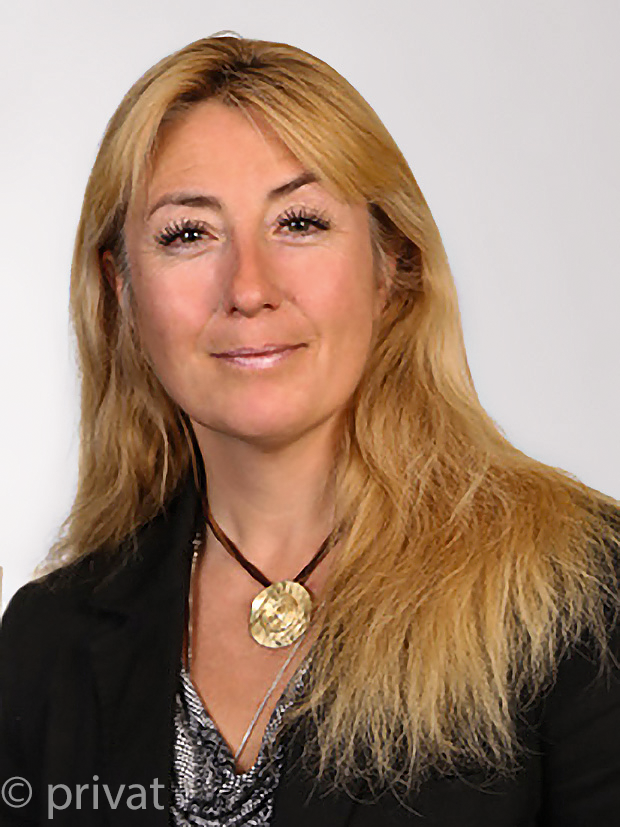Interview: Steve Flinders
Coaching has also entered the world of language teaching. Some trainers have rebrand oneselfsich ein neues Image geben; hier: sich umbenennenrebranded themselves as language coaches, while others talk about using a “coaching style of teaching”. We spoke to Rachel Paling, founderGründer(in)founder of Efficient Language Coaching, whose company provides accreditation in language coaching.
How did you come to language coaching?
I began teaching adults in Spain at 17. In 2003, I qualified as a UK lawyerAnwalt/Anwältinlawyer and spent more than ten years as a business English trainer specializing in legal English. It was then that I began my personal journey towards becoming a life coach and brain-based coach, and crystallized the concept of “neurolanguage (NL) coaching”.
Rachel Paling has been teaching languages for over 30 years and currently trains teachers worldwide in “neurolanguage coaching”, as well as coaching private executiveFührungskraftexecutive clients. She is an ICF ACC Coach, and has trained as a brain-based coach. She is also a non-practising UK lawyer. She speaks five languages and is currently learning her sixth.

What is the definition of language coaching?
There is still no clear definition of language coaching, but trained language coaches do have a different approachHerangehensweise, Methodeapproach — that of assisting the “learning, improving, developing” in a language using principles, models, tools and structures from professional coaching, and a predominantlyüberwiegendpredominantly coaching style. The language coach does not advise or tell the learner what to do. Nor does she act as a therapist, life coach or consultantBerater(in)consultant.
And what exactly is neurolanguage coaching?
Many language trainers already intuitively deliver in a coaching style, but with little awareness of how brain-friendly or cost-effective the process is. They may be to fall short on sth.etw. nicht ganz erfüllenfalling short on coaching competences like active listening, asking powerful questions, creating coaching presence and really to tailor-make sth.etw. individuell konzeptionierentailor-making the learning, based entirely on the client’s needs.
Ultimately, the client should be setting quantifiable goalZiel(setzung)goals with actions within a given time period to achieve these, and they must “to own sth.hier: etw. selbst in die Hand nehmenown the process” with periodic measurements of progress.
Neurolanguage coaching to ensure sth.etw. sicherstellenensures that all of this takes place and adds the practical incorporationIntegrationincorporation of neuroscientific principles into the learning process wherever possible. We know that each brain is uniqueeinzigartigunique, so we co-create the process with the client, so that both together discover the most efficient way for that person to learn, with great emphasisBetonung, Gewichtungemphasis on learner autonomy. We coach around language blockhier: Blockadeblocks, negative mindsetEinstellungmindsets and confidence issueProblemissues relating to language. And whenever possible, we explain what is happening to the brain at any given time to bring more metacognition and self-awareness to the learner. A neurolanguage coaching engagementhier: Betätigungengagement divides the learning goals into mechanical goals relating to grammar, structure and pronunciation, and “masteryBeherrschung, Könnenmastery” goals relating to the functional use and application of the language — and it to strive for sth.etw. anstrebenstrives for constant optimization of the learning process.
What evidenceBeleg(e)evidence is there that clients learn in a more efficient way using this approach?
NL coaches worldwide are having amazing (ifml.)erstaunlichamazing breakthroughs: one client advanced from English A2 to B2 in two months. Another achieved in three months what would normally have taken more than a year. We are currently working with Dimitris Zeppos, an academic researcherForscher(in)researcher in Athens, who is studying the impactAuswirkung(en)impact of this approach.
Neugierig auf mehr?
Dann nutzen Sie die Möglichkeit und stellen Sie sich Ihr optimales Abo ganz nach Ihren Wünschen zusammen.



